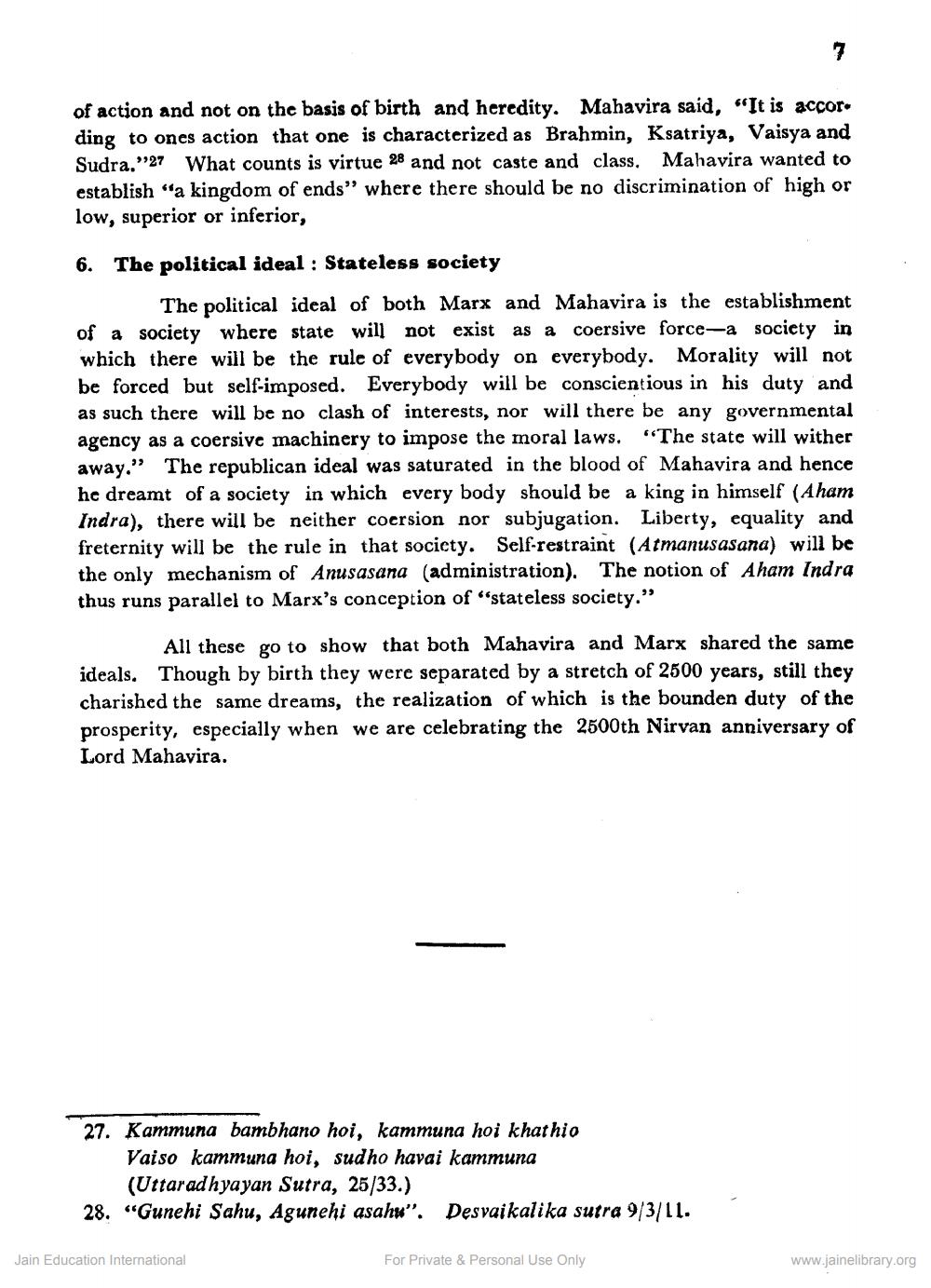________________
of action and not on the basis of birth and heredity. Mahavira said, "It is accor ding to ones action that one is characterized as Brahmin, Ksatriya, Vaisya and Sudra." What counts is virtue 20 and not caste and class. Mahavira wanted to establish "a kingdom of ends" where there should be no discrimination of high or low, superior or inferior,
6. The political ideal: Stateless society
The political ideal of both Marx and Mahavira is the establishment of a society where state will not exist as a coersive force-a society in which there will be the rule of everybody on everybody. Morality will not be forced but self-imposed. Everybody will be conscientious in his duty and as such there will be no clash of interests, nor will there be any governmental agency as a coersive machinery to impose the moral laws. "The state will wither away." The republican ideal was saturated in the blood of Mahavira and hence he dreamt of a society in which every body should be a king in himself (Aham Indra), there will be neither coersion nor subjugation. Liberty, equality and freternity will be the rule in that society. Self-restraint (Atmanusasana) will be the only mechanism of Anusasana (administration). The notion of Aham Indra thus runs parallel to Marx's conception of "stateless society."
All these go to show that both Mahavira and Marx shared the same ideals. Though by birth they were separated by a stretch of 2500 years, still they charished the same dreams, the realization of which is the bounden duty of the prosperity, especially when we are celebrating the 2500th Nirvan anniversary of
Lord Mahavira.
27. Kammuna bambhano hoi, kammuna hoi khathio Vaiso kammuna hoi, sudho havai kammuna
7
(Uttaradhyayan Sutra, 25/33.)
28. "Gunehi Sahu, Agunehi asahu". Desvaikalika sutra 9/3/11.
Jain Education International
For Private & Personal Use Only
www.jainelibrary.org




